

Today we’d like to introduce you to Jodie Evans.
Hi Jodie, thanks for sharing your story with us. To start, maybe you can tell our readers some of your backstories.
In the midst of managing Jerry Brown’s 92 Presidential campaign the Rodney King verdict came down and Los Angeles was on fire. We closed the campaign down and Jerry came back to LA which pivoted my attention to what was happening in my own city. The next 10 years while working with Aqeela Sherrills, who had helped negotiate a peace treaty with the Crips and the Bloods the night before the verdict and who stewarded funds diverted from the police to community safety programs in Watts, I learned the war comes home to our communities. When Bush was frightening the American people into war on Iraq with the color-coded alerts orange, red and yellow, I looked to what I had learned in Watts and flew to DC to stand outside the White House and say no to killing innocent people. No to war, it is never the answer. With friends, including Medea Benjamin, we called CODEPINK for peace. That was 20 years ago. We have stood, rallied, and educated against violence, sanctions, drones, illegal imprisonment, and wars since. In the process, I learned that I can’t end war until there is no more war economy. War just serves the war economy; the rich and their structures that are violent, oppressive, and destructive. They are killing you, your community, and the planet. Seeing the results of this as a tsunami of effects that will arise from global inequality, climate change, $2T spent on weapons each year, and AI, I wanted to understand how to build the ark that would get us through the flood. As too much has been put in motion and nothing is happening to change course. What I discovered is a peace economy; the giving, sharing, caring, thriving, relational economy without which we would not be alive. But everyone’s attention is on the war economy. Fortunately, after covid, many of us learned what is essential and started to make different decisions about our lives, but we still live in a war economy. And that is our culture. So, I created 22 ways to divest from the war economy culture and become the peace economy, as no matter what happens we need a local peace economy. Local peace economy projects are mushrooming around the world. People are finding ways to be relational instead of transactional, to break out of the chains of scarcity and find the field of generosity, and to learn we can’t solve problems, instead, we can manage complexities and serve needs. We can learn to listen, and respond instead of react, we can make things with our hands and share them and find our way out of stress to fulfillment even in the face of so much that is deeply concerning. The only recognizable feature of hope is action. Too many are responding in fear with fight, flight, or freeze, none of these allows for life to be joyful, nourishing, and fulfilling. At CODEPINK we spend half of our time throwing all we can at the war machine to slow it down, while we support each other to cultivate local peace economies. You can join us in the streets or cultivating a peace economy of your own near you.
I’m sure you wouldn’t say it’s been obstacle free, but so far would you say the journey has been a fairly smooth road?
We live in a war economy; we make up the culture of it. Those of us in the US don’t realize what that means, the stress it is and to survive inside it we are taken further and further from the nourishment of being a grounded human. We succeed if we are transactional not relational, we succeed if we are a slave to time, we succeed if we can solve a problem even as it makes the world worse. We are slaves to greed and fear and becoming more narcissistic by the day. But to turn around and create something new, when our creativity has been starved out of us, when our imaginations have been hi-jacked; feels impossible. So, we just do the same things hoping for a different outcome. To pivot to a peace economy needs time to grieve what has been lost, what is being created, and what we have been running from. It takes practicing ourselves out of the bad habits of the war economy. They are not us, but we act from them. And getting out of the imperialist mindset that we are the masters of the universe, and the world should be as we want it, instead to be in relationship with what is and from there meet immediate reachable needs. People say it is impossible; but if the possible is untenable, why not do what you can to create what feels impossible. In the process one experiences gratitude, joy, connectivity, and fulfillment. But getting there takes real commitment. War is the greatest industrial contributor to climate change, war is not green, but it is not in the conversation about how we save the planet. The pentagon has made sure it stays hidden. No matter what we do to save the planet, if we do not end war, we will not lower carbon in the atmosphere. If we want Peace, we need to stand for it, if we want a planet, we need peace.
Can you tell our readers more about what you do and what you think sets you apart from others?
Cultivating peace in a world at war with itself.
What sort of changes are you expecting over the next 5-10 years?
The war economy is killing us our communities and the planet, if we don’t pivot to cultivating peace in the face of global inequality, climate change, and the overrunning of our hearts and brains by machines, we will not exist anymore. Life on earth is robust and fragile, we are in fragile times, cultivating a local peace economy nourishes you in the moment, creates the capacities to live in unstable times and it starves the war economy. Pivot to Peace, don’t be a slave to the war economy.
Contact Info:
- Website: www.codepink.org
- Instagram: https://www.instagram.com/heartofj/?hl=en
- Facebook: https://www.facebook.com/jodie.evans.169/
- Twitter: @MsJodieEvans
- Youtube: https://www.youtube.com/user/codepinkaction

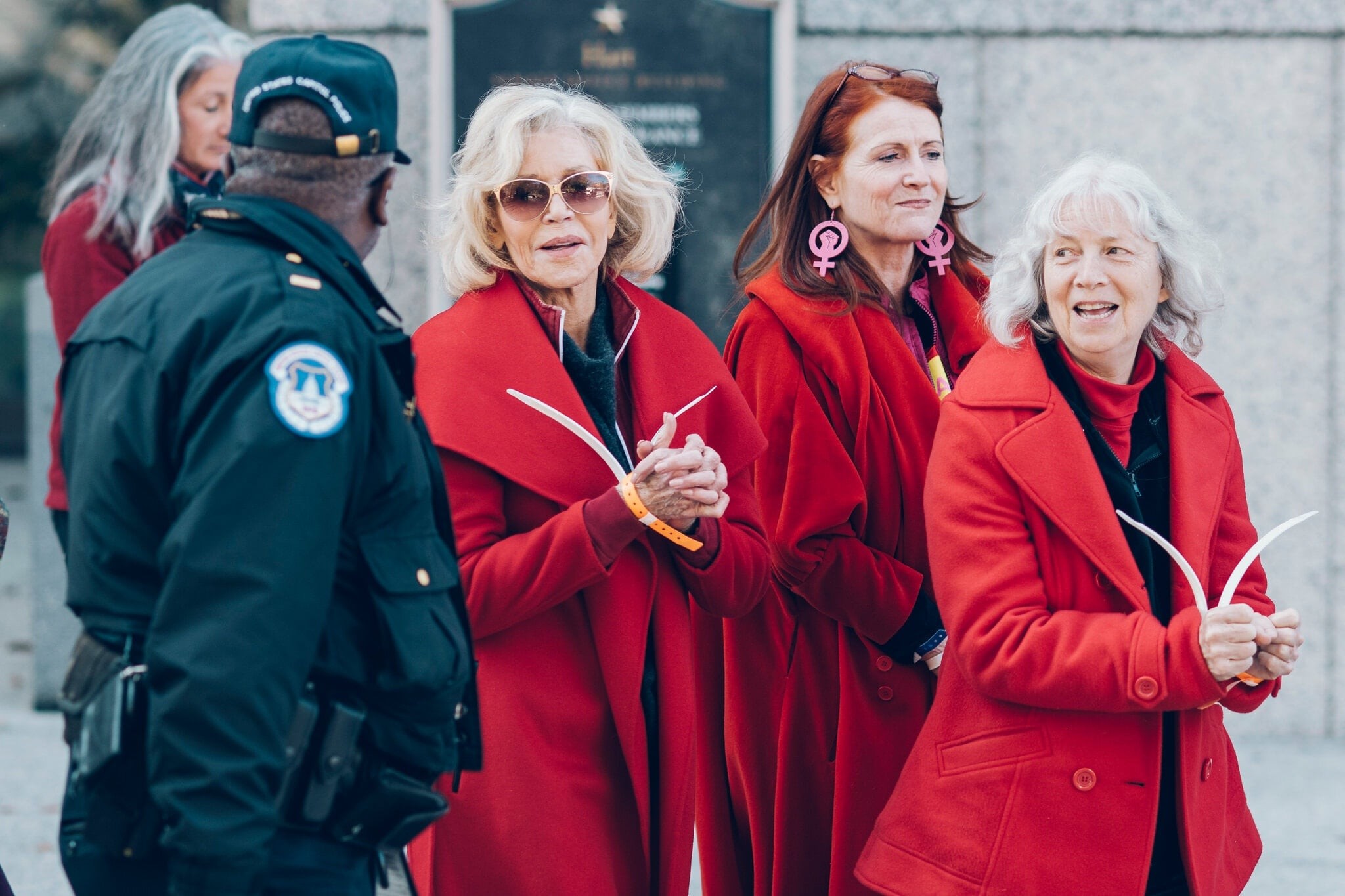
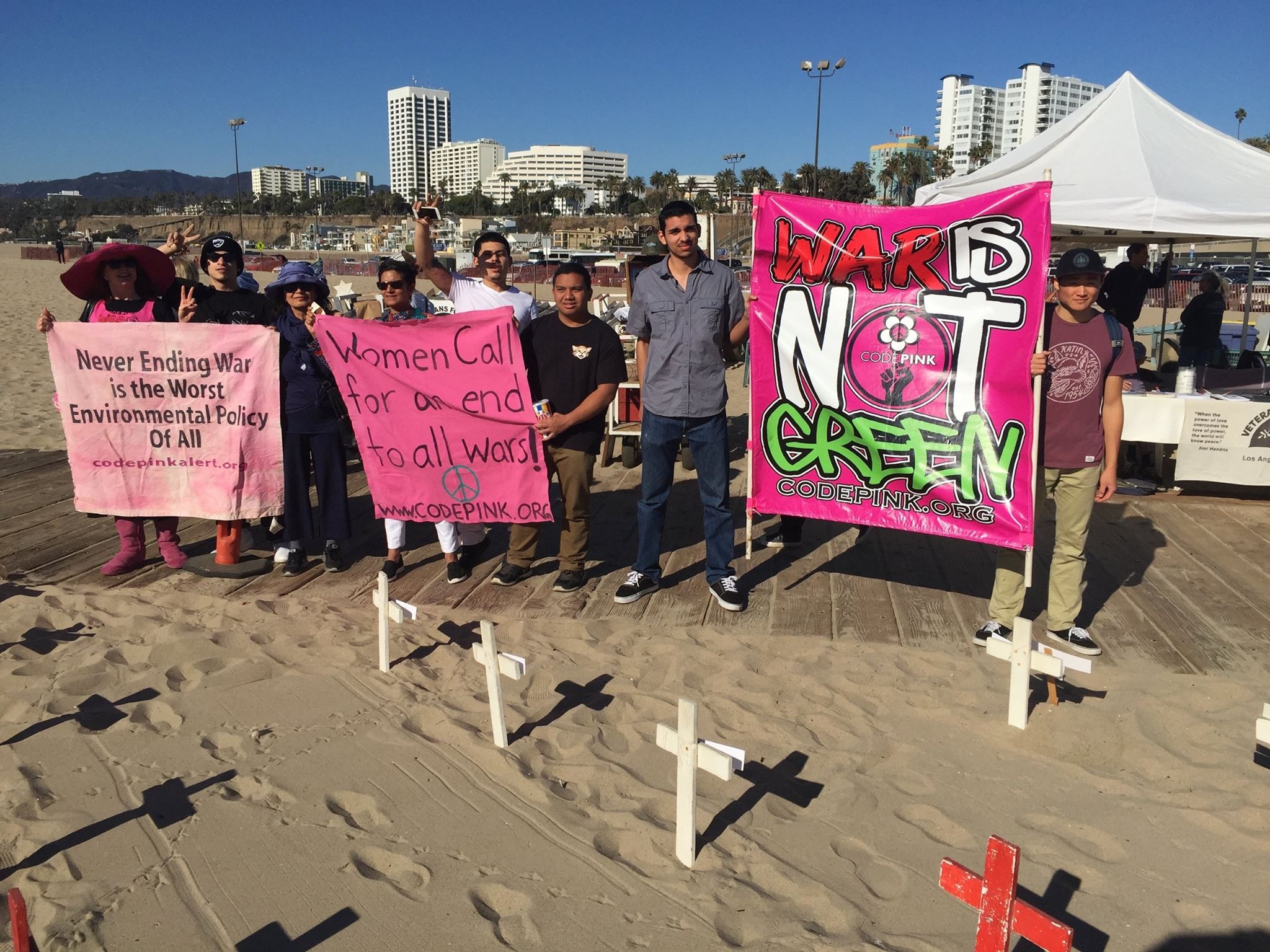
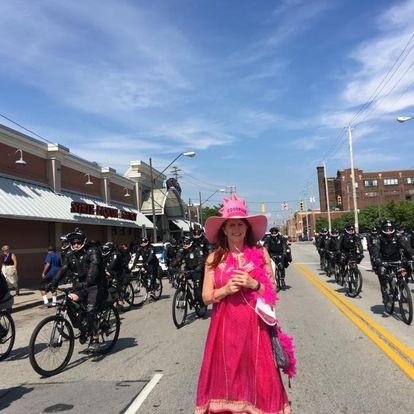

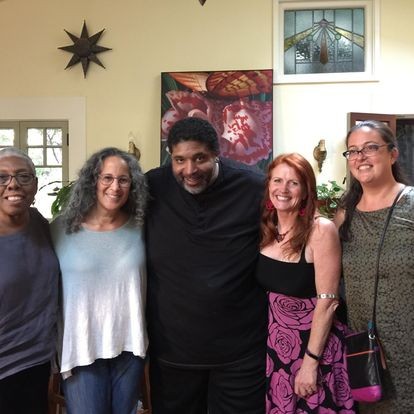
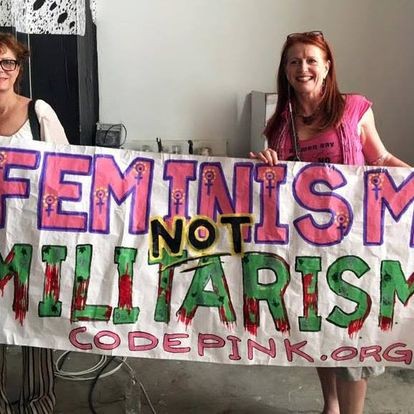

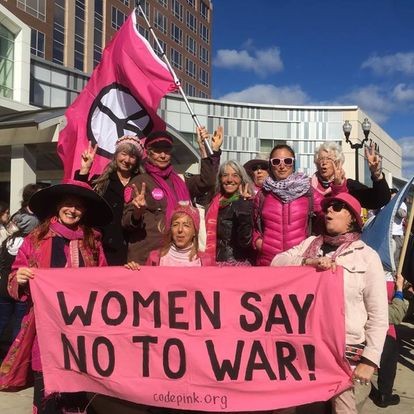
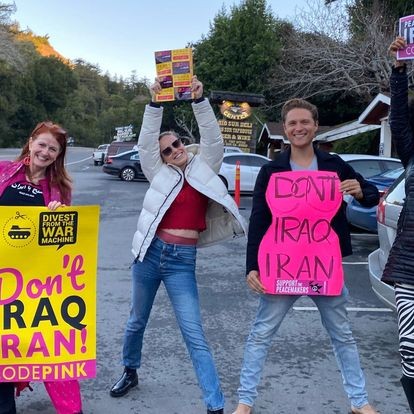
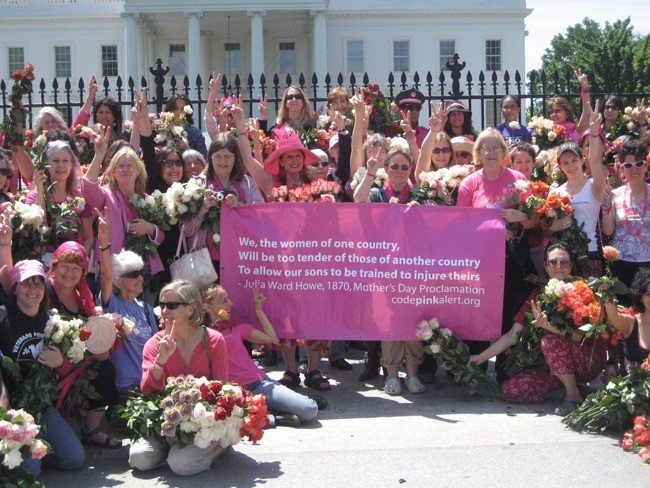
Image Credits
Nicol Ragland
Jack Prichett
Susan Sarandon
Julia Ward Howe
Reverand Barber
Rev Liz Theoharis
Gina Belafonte
Jane Fonda
Dave Eggers
Brie Larson
Elijah Blitz
Renee Wilson











